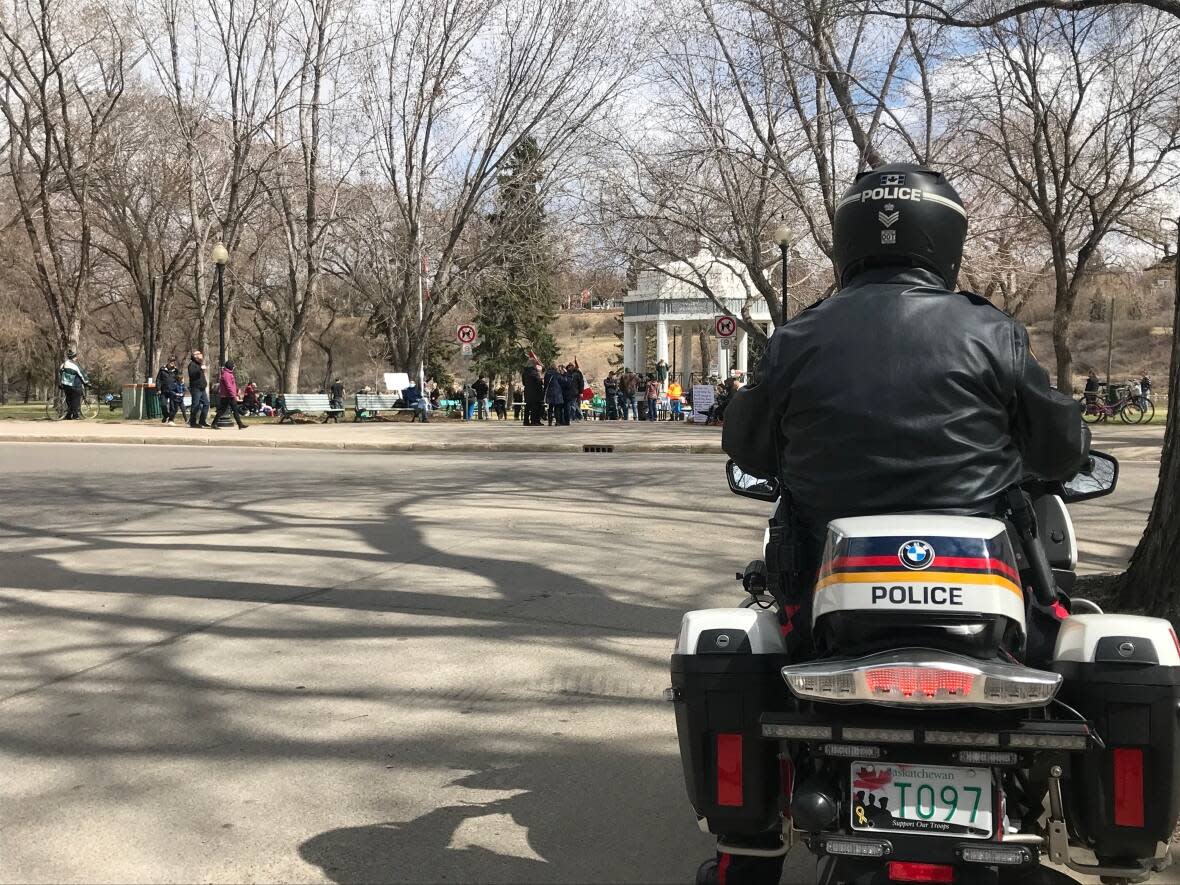Mark Friesen among those found guilty of violating pandemic gathering limits on 3 separate dates

Organizers of protests against COVID-19 vaccines were among a group of people found guilty of violating Saskatchewan's pandemic gathering limits, according to a trio of decisions released by Saskatchewan's provincial court this week.
Although the tickets were issued on three separate dates — Dec. 5, 2020, Dec. 19, 2020 and April 24, 2021 — the decisions are interrelated, as many of the defendants put forward the same arguments, all of which which were ultimately dismissed by provincial court Justice Quentin Agnew.
The three decisions were issued on Jan. 17, 2023.
Mark Friesen, who ran as a candidate for the Buffalo Party of Saskatchewan in September's Saskatoon Meewasin byelection, is the only person named in each of the three decisions.
Judge not persuaded
The decision related to the tickets issued on Dec. 19 lays out the issues Agnew found in the defendant's arguments for all three dates.
On Dec. 19, 2020, a rally was held at the Vimy Memorial in Kiwanis Park in Saskatoon despite a public health order prohibiting outdoor gatherings of more than 10 people.
Saskatoon police would later use a video recorded by officers, a livestream posted by one of the defendants and driver's licence information from Saskatchewan Government Insurance (SGI) to identify and ticket some of the individuals at the rally.
Seven of those people were defendants in this case.
The information pulled from SGI included each person's name, photograph and address.
The data was one of the four issues that the defendants attempted to raise with the judge.
However, their argument that identifying them with information from SGI was a violation of their rights to unreasonable search or seizure under the Charter of Rights and Freedoms held no water with Agnew.
He found that the defendants had no expectation that their information held by SGI would be kept private. SGI's privacy statement sets out that it can share its customers information without their consent, and specifically mentions assisting law enforcement of a lawful investigation.
"Given that the law specifically authorizes release of their names, photographs and addresses by SGI to the police for the purpose of investigating apparent breaches of the law, it is difficult to see how the defendants could have had a reasonable expectation that SGI would not do so," Agnew wrote in his decision.
He noted that no one is forced to provide information to SGI, but that the information was voluntarily provided to SGI as part of the process to apply for a driver's license.
Agnew also rejected arguments that the public health order was too vague and as a result it should be unconstitutional.
The defendants did not specify what part of the order was vague, making it difficult for the judge to interpret their argument.
"It is not the Court's role to hunt through the law to try to find a defence for an accused," Agnew wrote.
While he did go over the legislation and analyze it, he found no vagueness in the order.
Agnew also deconstructed arguments from the defence about the public health order being an example of unauthorized delegation of power or inconsistent with the Constitution. Once again he found them unpersuasive and not backed up by previous decisions.
As a result, Agnew found all seven of the defendants guilty as charged.
Other incidents
Friesen was also charged with violating the public health order by attending a public gathering at Vimy Memorial in Kiwanis Park in Saskatoon on Dec. 5, 2020.
He tried to use the the same arguments made in the previous case. Agnew dismissed all of them using the same rulings.
Friesen also attempted to argue that police abused their discretion when ticketing him and not other people at the gathering and that he should've been given a warning.
Agnew disagreed, saying that there was no evidence before him that no one else had been charged and that there is no requirement for police to issue a warning when someone is breaking the law.
As a result, Agnew found Friesen guilty.
The eight defendants who were ticketed on April 24, 2021, attempted the same arguments about the vagueness of the public health order and the order being an unauthorized delegation of power.
Agnew relied on his previous explanations and found the defendants guilty.


